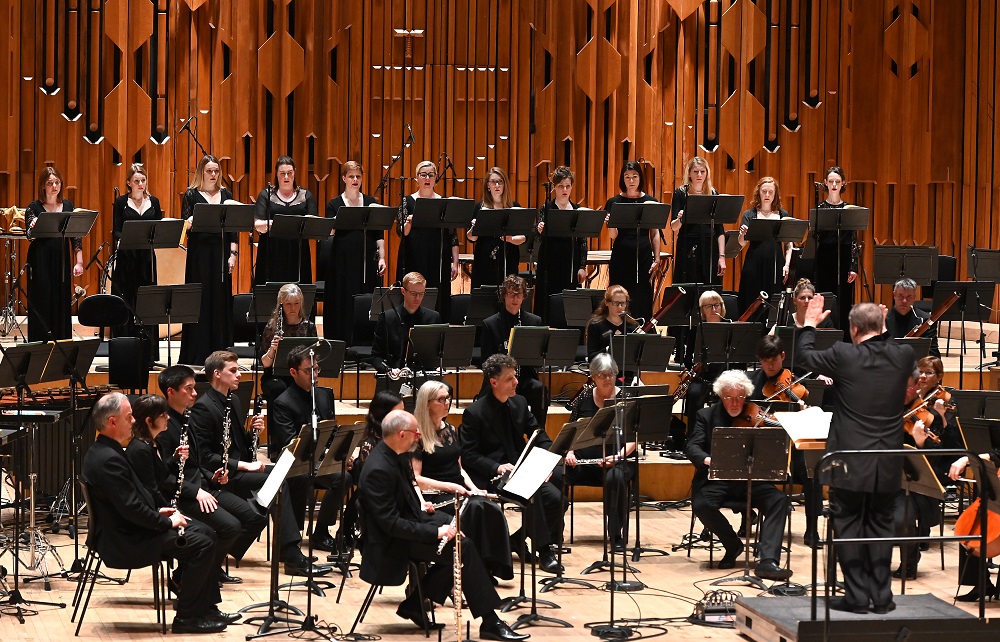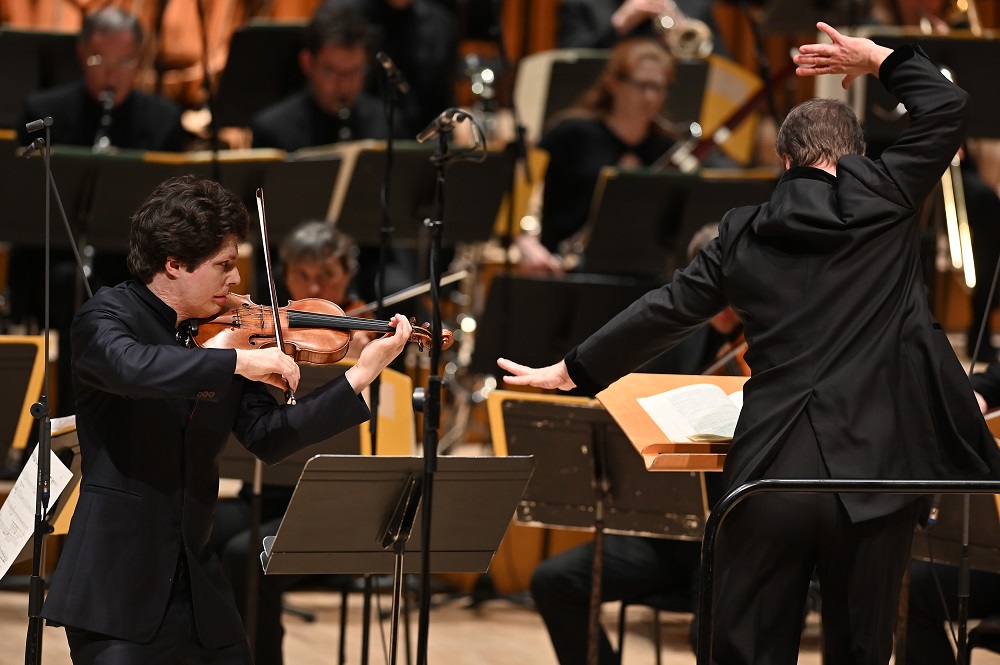A day devoted entirely to the life and work of György Ligeti celebrated this composer’s remarkable oeuvre through a sequence programme of film, talks and concerts of his music. The final two of these performances were a short recital of his choral works, given by the BBC Singers in St Giles’ Cripplegate, and a concert from the BBC Symphony Orchestra of some of Ligeti’s orchestral masterpieces in the Barbican Hall.
Under their chief conductor Sofi Jeannin – who led with style, clarity and precision – the BBC Singers (female members, picured below at the later event) opened their concert with settings of two short texts by one of Ligeti’s associates, the Hungarian poet Sándor Weöres. Night - Morning began with a beautiful, dusky serenity, then ended with a lively energy to herald the morning. Ligeti’s setting of the Lux Aeterna – perhaps best known for its use in Stanley Kubrick’s 1968 film 2001: A Space Odyssey – began with shimmering consonants from the choir delightfully peppering the complex chord clusters. Far from Home, a set of four songs, saw the singers evoke the spirit of the Hungarian and Slovakian folk poetry to which it’s set, with a lovely balance to their polyphony. 
The day culminated with a superb performance from the BBC Symphony Orchestra, which explored some of Ligeti’s seminal orchestral works Sadly, due to complicated stage re-settings which obviously took longer than forecast, at 10 minutes before the concert’s advertised end time the second half was yet to begin. Obviously a bit of give and take with timings is to be expected, but this was a surprisingly excessive delay, and as a non-London dweller I had no choice but to leave at the interval if I was to avoid interrupting a piece, or being stranded. (Please blame the rail companies’ timetabling!) This was a great pity, as if the first half was anything to go by, the second’s performances of Ligeti’s Piano Concerto and his 1973-4 work San Francisco Polyphony would have been fantastic. Alas, I’ll need to wait until the broadcast to find out. 
Violinist Augustin Hadelich (pictured above with Oramo) gave a tremendously athletic performance of Ligeti’s Violin Concerto, which was written between 1989 and 1993. His quivering opening melody gradually turned from soothing to disconcerting, and his dialogue with his fellow musicians was gripping, as soloist and orchestra navigated Ligeti's complex and curious harmonic landscapes. The cadenza in the final movement was quite dazzling, Hadelich playing with a fervent, almost obsessive vigour, before the percussion came in to give the piece a punchy, piquant finish.












